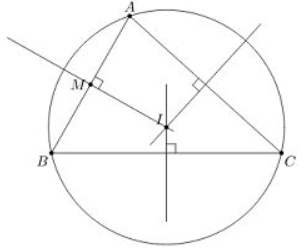II. NHẦM LẪN KHI SỬ DỤNG TỪ CÓ ÂM GẦN
GIỐNG NHAU HOẶC ĐỒNG ÂM (SIMILAR SOUNDS/ HOMOPHONE)
1. Quite –
Quiet
■ Quite (khá, hoàn toàn):
là tính từ chỉ về mức
độ, nó thường đi kèm cùng với một tính từ khác.
EX: This book is quite good
(Chỉ
mức độ: bad → quite good → good)
→ được
sử dụng gần tương tự như với “rather”,
nhưng tính chất thì yếu hơn một chút so với “rather”.
EX: The film was quite enjoyable,
although some of the acting was weak.
■ Quiet (yên lặng, không có tiếng ồn): là tính từ chỉ về trạng thái
EX: Be quite!
2. Lose –
Loose
■ Lose/ lost/ lost (mất,
thất lạc): là một động
từ bất qui tắc
EX: She lost her job.
■ Loose (lỏng, không vừa): là một tính từ.
EX: These trousers are very loose.
→ Thành
ngữ chỉ một người không biết giữ mồm miệng: “a loose cannon”.
3. Fell – Felt
■ Fall/ Fell/ Fallen (rơi,
ngã): là quá khứ
phân từ của động từ “to fall”.
EX: Yesterday I fell and broke my arm.
(Hôm
qua tôi bị ngã và gãy tay).
■ Feel/ Felt/ Felt: cảm nhận, thấy
→ Felt
là quá khứ phân từ của động từ “to
feel”.
EX: I felt better after I had a good
dinner.
Yesterday I felt ill, but I feel OK today.
4. Cooker – Cook
→ Theo
một số qui tắc trong tiếng anh, khi hình thành danh từ chỉ nghề nghiệp từ động
từ thì người ta thường thêm đuôi “er”
vào sau động từ.
EX: Work -> worker
Teach
-> teacher
→ Tuy
nhiên với động từ “cook” thì khi
thêm “er” vào sau động từ này -> “cooker” lại có nghĩa là đồ vật để nấu
thức ăn (cái nồi).
EX: This cooker cost $40.
→ Còn
nếu muốn nghề nghiệp về nấu nướng thì ta vẫn giữ nguyên đông từ “cook”. Như vậy “cook” vừa là động từ vừa là danh từ.
EX: He is a very good cook.
5. Việc nhầm lẫn từ có âm gần giống nhau nhưng khác nghĩa có thể cũng
không được phát hiện khi nói
→ nhưng
nói nhầm thì ắt sẽ viết nhầm và không phải bạn nào cũng chú ý đến điều này nên
ta cũng không khó để bắt gặp những nhầm lẫn nực cười như: Giữa “food” (thức ăn) và “foot” (chân) trong ví dụ sau:
EX:
Incorrect: I can’t drive, so I often go
to work by food.
Correct: I can’t drive, so I often go
to work by foot.
Ngoài ra, ta
còn gặp rất nhiều các cặp đôi, ba, thậm chí bốn hoặc hơn nữa những từ có cách
phát âm gần giống nhau như :
|
commend
(khen ngợi, tán dương) /kə'mend/ |
comment
(bình luận) |
|
horror
(kinh dị) |
hero (anh
hùng) |
|
concerned
(lo âu, liên quan) |
concerted
(có bản tính) |
|
ỉntend (có
ý định) |
intent (ý
định) |
*Còn những
trường hợp đồng âm hoàn toàn như:
|
wear (mặc) |
where (ở
đâu) |
|
|
seen (đã
thấy) |
scene (cảnh) |
|
|
through
(xuyên suốt) |
threw
(ném, quăng) |
|
|
brake (hãm
lại, dừng lại/ cái phanh) |
break (làm
vỡ, hoãn lại/ giờ nghỉ) |
|
|
peace (hòa
bình, yên bình) |
piece (mẩu/
nối, sửa) |
|
|
plain → (adj): bình thường, rõ ràng, đơn giản |
plane → (n) máy
bay,mặt phẳng |
|
|
son (con
trai) |
sun (mặt
trời) |
|
|
sole (độc
nhất) |
soul (linh
hồn) |
|
|
which (
cái nào) |
witch (phù
thủy) |
|
|
weak (yếu) |
week (tuần)
|
|
|
passed (đã
qua) |
past (quá
khứ) |
|
|
sent (đã gửi) |
cent (xu) |
scent (mùi
hương) |
|
sight (sự
nhìn, thị lực) |
cite
(trích dẫn) |
site (vị
trí) |
|
to (giới từ) |
too (cũng) |
two (số
hai) |
|
write (ghi
chép) |
rite (lễ
nghi) |
right
(đúng, phải) |
EX: If you can piece together the pieces
of this story, perhaps we can have some peace around here.
III. NHẦM LẪN VỀ KẾT HỢP CỦA MỘT TỪ VỚI
MỘT TIỂU TỪ KHÁC (PHRASAL VERBS)
Những kết hợp gây rắc
rối nhiều nhất cho chúng ta có lẽ là kết hợp của một động từ với các tiểu từ
khác trong các “cụm động từ”.
|
Phrasal verbs |
Meaning |
Example sentence |
|
Ask somebody out |
Invite on a date |
He's too shy to ask her out. |
|
Ask around |
Ask many people
the same question |
I asked around but nobody has seen my
wallet. |
|
Add up to something |
equal |
Your purchases add up to $205.32 |
|
Back something up |
Reserve |
You’ll have to back up your car so that I can get
out. |
|
Back sombody up |
Support |
My wife backed me up over my decision to quit my job. |
|
Break down |
Stop functioning |
Our car broke down at the side of the highway
in the snowstorm. |
|
Break down |
Get upset |
The woman broke down when the police told her
that her son had died. |
|
Break something down |
Divide sth into
smaller parts |
Our teacher broke the final project down into three separate parts. |
|
Break up |
End a
relationship |
My boy friend and
I broke up before I moved to
America. |
|
Break up |
Strat laughing |
The kids just broke up as soon as the clown started
talking. |
|
Bring something up |
Start talking
about a subject |
My mother walks
out of the room when my father brings
up sports. |
|
Bring something up |
Vomit |
He drank so much
that he brought his dinner up in the toilet. |
|
Call someone back |
Return a phone
call |
I called the company back but the offcices were closed for
the weekend. |
|
Call something off |
Cancel |
Jason called the wedding off because he wasn/t in love with
his fiancé. |
|
Call on someone |
Ask for an answer
or opinion |
The teacher called on me for question I. |
|
Call on someone |
Visit someone |
We called on you last night, but you
weren’home |
|
Calm down |
Relax after being
angry |
You are still
mad. You need to calm down before
you drive the car. |
|
Check out someone/something |
Look at |
Check out the crazy hair on that guy! |
|
Cheer someone up |
Make happier |
I brought you
some flowers to cheer you up. |
|
Chip in |
Help |
If everyone chips in, we can get the kitchen
painted by noon. |
|
Clean something up |
Tidy, clean |
Please clean up your bedroom before you go
outside. |
|
Come apart |
Separate |
The top and
bottom come apart if you pull hard
enough. |
|
Come down with something |
Become sick |
My nephew came down with chicken pox this
weekend. |
|
Come forward |
Volunteer for a
task or give evidence |
The woman came forward with her husband’s
finger prints. |
|
Count on someone/ something |
Rely on |
I am counting on you to make dinner while
I am out. |
|
Cut back on something |
Consume less |
My doctor wants
me to cut back on sweets and fatty
foods. |
|
Cut something off |
Remove with
something sharp |
The doctors cut off his leg because it was
severely injured. |
|
Do something over |
Do again |
My teacher wants
me to do my essay over because she doesn’t like my
topic. |
|
Do away with something |
Discard |
It’s time to do away with all of these old tax
records. |
|
Do something up |
Fasten, close |
Do your coat up
before you go outside. It’s snowing. |
|
Dress up |
Wear nice
clothing |
It’s a fancy
restaurant so we have to dress up. |
|
Drop in/ by / over |
Come without an
appointment |
I might drop in/ by/ over for tea sometime
this week. |
|
Drop out |
Quit a class,
school, etc... |
I dropped out of Scince because it was
too difficult. |
|
End up |
Eventually reach/
do/ decide |
We ended up renting a movie instead of
going to the theatre. |
|
Fall apart |
Break into pieces |
My new dress fell apart in the washing machine. |
|
Figure something out |
Understand, find
the answer |
I need to figure out how to fit the piano and
the bookshelf in this room. |
|
Fill something up |
Fill to the top |
I always fill the water jug up when it’s empty. |
|
Get something across/ over |
Communicate, make
understandable |
I tried to get my point across/ over to the judge but she wouldn’t listen. |
|
Get along/ on |
Like each other |
I was surprised
how well my new girlfriend and my sister got
along/ on. |
|
Get around |
Have mobility |
My grandfather
can get around fine in his new
wheelchair. |
|
Get away with something |
Do without being
noticed or punished |
Jason always gets away with cheatting in his math
tests. |
|
Get something back |
Receive something
you had before |
Lan finally got her Science notes back from my roommate. |
|
Get back at someone |
Retaliate, take
revenge |
My sister got back at me for stealing her
shoes. She stole my favourite hat. |
|
Get back into something |
Become interested
in something again |
I finally got back into my novel and finished
it |
|
Get round to something |
Finally find time
to do |
In don’t know
when I am going to get round to
writing the thank you cards. |
|
Give someone away |
Reveal hidden
information about someone |
His wife gave him away to the police. |
|
Give someone away |
Take the bride to
the altar |
My father gave me away at my wedding. |
|
Give something away |
Ruin a secret |
My little sister gave the surprising party away by accident. |
|
Give in |
Reluctantly stop
fighting or arguing |
My boyfriend
didn’t want to go to the ballet, but he finally gave in. |
|
Go after something |
Try to achieve
something |
I went after my dream and now I am a
published writer. |
|
Go against someone |
Compete, oppose |
We are going against the best soccer team in
the city tonight. |
|
Go back |
Return to a place |
I have to go back home and get my lunch. |
|
Go out with someone |
Date |
TS used to go out with Tom last year. |
|
Go over something |
Review |
You should go over your all lessons before the
test. |
|
Go over |
Visit somebody
nearby |
I haven’t met Lan
for a long time. I think I’ll go over
for an hour or two. |
|
Go without something |
Suffer lack or
deprivation |
When I was young,
we went without winter boots. |
|
Grow apart |
Stop being
friends over time |
My best friend
and I grew apart after she changed
school. |
|
Grow out of something |
Get too big for |
Elizabeth needs a
new pair of shoes because she has grown
out of the old ones. |
|
Hand something down |
Give something
used to someone else |
I handed my old comic books down to my little cousin. |
|
Hand something over |
Give (usually
unwilling) |
The police asked
the man to hand over his wallit
and weapons. |
|
Hang out |
Spend time
relaxing (informal) |
Instead of going
to the party, we are just going to hang
out at my place. |
|
Hang up |
End a phone call |
He didn’t say
goodbye before he hung up. |
|
Hold something back |
Hide an emotion |
Justin held back his tears at his
grandfather’s funeral |
|
Hold on |
Wait a short time |
Please hold on while I transfer you to the
Sale Department. |
|
Hold onto someone/ something |
Hold firmly using
your hands or arms |
Hold onto your hat because it’s very windy outside. |
|
Keep something from someone |
Not tell |
We kept our relationship from our parents for two years. |
|
Keep someone/ something
out |
Stop from
entering |
Try to keep the wet dog out of the living room. |
|
Log out (or off) |
Sign out (of a
website, database etc...) |
If you don’t log off, somebody could get into your
account. |
|
Look down on someone |
Think less of, consider
inferior |
Ever since we
stole that chocolate bar, your dad has looked
down on me |
|
Look out |
Be careful,
vigilant and take notice |
Look out! That car is going to hit you. |
|
Look up to someone |
Have a lot of
respect for |
My little sister
has always looked up to me. |
|
Make up |
Forgive each
other |
We were angry
last night, but we made up at
breakfast. |
|
Make someone up |
Apply comestics
to |
My sister made me up for my graduation party. |
|
Pass away |
Die |
His uncle passed away last night beacuse of his
long illness. |
|
Pass out |
Faint |
It was so hot in
the church that an elderly lady passed
out. |
|
Pay for something |
Being punished
for doing something bad |
That bully will pay for being mean to my brother. |
|
Pick something out |
Choose |
I picked out these three sweaters for
you to try on. |
|
Put someone down |
Insult, make
someone feel stupid |
The student put the substitute teacher down because his pants were too
short. |
|
Put something off |
Postpone |
We are putting off our trip until January
because of the hurricane. |
|
Put something out |
Extinguish |
The
neighbors put the fire out
before the firemen arrived. |
|
Put up with someone/ something |
Tolerate |
I don’t think I
can put up with him. |
|
Run into someone/ something |
Meet unexpectedly |
I ran into an old friend at the mall. |
|
Run over/ through something |
Rehearse, review |
Let’s run over/ through these lines one
more time before the show. |
|
Set someone up |
Trick, trap |
The police set up the car thief by using a
hidden camera. |
|
Shop around |
Cpmpare pieces |
I want to shop around alittle before I decide
on these boots. |
|
Show off |
Act extra special
for people watching (usually boastfully) |
He always shows off on his skateboard. |
|
Sort something out |
Organize, resolve
a problem |
We need to sort the bills out before the first of the month. |
|
Stick to something |
Continue doing
something, limit yourself to one particular thing |
You will lose
weight if you stick to the diet. |
|
Take something apart |
Purposely break
into pieces |
He took the car brakes apart and found the problem. |
|
Think back |
Remember (often +
to, sometimes + on) |
When I think back on my youth, I wish I had
studied harder. |
|
Think something over |
Consider |
I’ll have to think this job offer over before I make my final decision. |
|
Turn something up |
Increase the
volume or strength (heat, light etc...) |
Can you turn the music up? This is my favourite song. |
|
Turn up |
Appear suddenly |
Our cat turnd up after we put the posters up
all over the neighbourhood. |
|
Try something on |
Sample clothing |
I’m going to try these jeans on. |
|
Try something out |
Test |
I’m going to try this new brand of detergent out. |
|
Use something up |
Finish the supply |
The kids used all of the toothpaste up so we need to buy some more. |
|
Warm up |
Prepare body for
exercise |
I always warm up by doing ait-ups before I go
for a run |
|
Wear off |
Fade away |
Mosr of my
make-up wore off before I got to
the party. |
|
Work out |
Be successful |
Our plan worked out fine. |
|
Work something out |
Make a
calculation |
We have to work the total cost out before we buy the house. |
IV. NHẦM LẪN VỀ CHÍNH TẢ
(SPELLING)
1. Besides – Beside: Bên cạnh
■ Besides: là trạng từ và giới từ.
EX: Besides
maths, he is good at literature.
EX: Tom is my youngest grandson and besides, I have two more.
■ Beside: là giới từ.
EX: I keep a dictionary beside me while I’m doing crosswords.
2. Sometime – Sometimes – Some
times
■ Sometime: lúc nào đó, có lần
→ là
một trạng từ không xác định, để nói về một việc gì đó xảy ra ở một thời điểm cụ
thể nào đó nhưng không nói rõ.
EX: You must visit us sometime.
■ Sometimes: thỉnh thoảng
→ cũng
là trạng từ không xác định, dùng để nói việc gì đó xảy ra không thường xuyên và
không phải tất cả thời gian.
EX: He
sometimes write to me.
■ Some times: một vài lần
→ được
dùng để chỉ những dịp cụ thể.
EX: There are some
times when I feel very depressed.
3. Everyday – Every day
■ Everyday (một từ): là tính từ, mang nghĩa “thông
thường, bình thường, diễn ra mỗi ngày” và luôn đứng trước danh từ.
EX: Don’t let the problem of everyday life get you down.
■ Every day (hai từ): là 1 tính từ + 1 danh từ, nhưng thường được dùng như một trạng
từ, chỉ sự thường xuyên xảy ra của hành động. Vì làm nhiệm vụ như 1 trạng từ
nên “every day” có thể đứng đầu hoặc
cuối câu.
EX: Every
day I feel a little better.
→ Có
thể nói “every day” đồng nghĩa với “each day”.
*Tuy nhiên, cần lưu ý:
Trong ví dụ trên, “every day” làm
nhiệm vụ như một trạng từ nhưng trong câu sau đây thì “every day” không làm nhiệm vụ như một trạng từ nữa mà trở về là 1 TÍNH TỪ + 1 DANH TỪ và làm chủ ngữ trong
câu:
EX: Every
day is a gift.
*Lưu ý:
Cùng với những băn khoăn này, ta còn thấy xuất hiện ở những cặp như:
■ “Already” là trạng từ có nghĩa là “đã,
rồi”, còn “All
ready” lại mang nghĩa “sẵn
sàng tuyệt đối”.
■ “Maybe” là trạng từ có nghĩa “có
thể, có lẽ” trong khi “May be” lại
là cụm động từ có nghĩa là “có thể
là”...
4. Cuối cùng là những từ dễ gây nhầm
lẫn do cách viết khá giống nhau (spelling)
■ “Dryer” và “Drier” vốn
có cùng nghĩa như nhau là máy làm khô như là “hair dryer” (máy sấy tóc) hay “clothes
dryer” (máy làm khô quần áo), nhưng thực tế, “drier” chỉ được dùng như tính từ để chỉ vật gì đó trở nên khô hơn.
■ “Angel” (thiên thần) và “angle” (góc
trong hình học) có cách viết khá giống nhau.
■ “Cite” (trích
dẫn) và “site” (địa điểm, khu đất để xây dựng) không chỉ phát âm
y hệt mà cách viết nhìn qua cũng dễ nhầm lẫn.
■ Hai
từ “later” (trạng từ) là sau đó, rồi thì (thường dùng với động
từ thời tương lai) và “latter” (tính
từ) mang nghĩa là cái thứ hai, cái sau, người sau (ngược lại với “the former”: cái trước, người trước)
chỉ khác nhau một chữ “t” ở giữa.
■ Từ
“college” nghĩa là (đại học/ cao đẳng) có phát âm và cách
viết dễ nhầm lẫn với “colleague” mang
nghĩa (đồng nghiệp).
■ Ngoài
ra, “Principal” (hiệu trưởng, chính, chủ yếu) cũng rất dễ bị nhầm
lẫn với “principle” (nguyên tắc, luật lệ).
■ “Quite” (khá là) và “quiet” (yên
lặng) là hai từ chúng ta rất dễ bị nhầm lẫn khi viết, bởi chỉ thay đổi vị trí của
2 chữ cái cuối là từ nọ thành từ kia rồi.
■ “Formally” là trạng từ, nghĩa “chính
thức, chỉnh tề”, dễ bị nhầm với “formerly” là
trạng từ, nghĩa “trước kia”.
V. NHẦM LẪN VỀ CHỨC
NĂNG CỦA TỪ VỰNG (WORD FUNCTION)
1. Affect – Effect
■ Affect (v): nghĩa là ảnh hưởng
EX: Inactivity affects
your health.
■ Effect (n): sự ảnh hưởng/ tầm ảnh hưởng
EX: She was deeply sleeping under the effect of the anesthetic.
2. After – Afterwards – Later
■ After: sau
→ được
dùng để chỉ một sự việc xảy ra sau khi nói hoặc sau một biến cố đặc biệt. “After” được dùng như môt giới từ.
EX: After
the meating, they met each other again.
→ “After” cũng được sử dụng như một liên
từ.
EX: After he finished reading that
book, he went to bed.
→ Trong
lối nói “shortly after” và “not long after” giữ chức năng như một
liên từ.
EX: It’s not long after I found his
house.
■ Afterwards: về sau
→ là
trạng từ chung khi ta không cần nhắc đến mốc thời gian hoặc biến cố đặc biệt.
EX: Can you visit me afterwards and tell me what you have done?
■ Later: sau này
→ là
trạng từ chỉ thời điểm hoặc tình huống theo sau thời điểm và tình huống bạn
đang nói đến hoặc là theo sau lúc đang nói.
EX: We didn’t get in touch with each
other three years later.
→ Cả
ba từ trên đều có thể dùng sau nhóm từ chỉ thời gian, chỉ khoảng thời gian sau
khi việc gì đã xảy ra.
EX: After
5 years of his graduation, Hung has gained considerable
achievements.
I returned to my hometown two years afterwards.
Some seconds later,
Hoa controlled herself.
3. Alike – Likely – Like
■ Alike (adj): giống nhau
→ dùng
khi nói về hai người hoặc vật tương tự nhau.
EX: Hoa and her father look alike.
■ Likely (a): chắc, có khả năng
→ dùng
để chỉ việc gì đó có thể xảy ra.
EX: She is likely
to visit me next weekend.
■ Like (adj): giống
→ là
giới từ
EX: Like
my mother, I really like cooking.
■ Like (v): thích
EX: I like
GOT7’s songs so much.
4. Alive – Lively
■ Alive (adj): còn sống
→ dùng
để chỉ một người đang sống.
→ dùng
sau một động từ chỉ trạng thái, đôi khi đứng sau danh từ chứ KHÔNG đứng trước danh từ.
EX: Fortunately, all people were still alive after the storm.
■ Lively (adj): sinh động, sống động
→ dùng
để chỉ cách cư xử và hành động mang tính tích cực và nhiệt tình.
EX: She has a lively
interest in everything around her.
5. Alone – Lonely – Lone
■ Alone: một mình
→ dùng
với nghĩa ai đó làm việc, vui chơi, ở... một mình, không có ai làm chung cả.
→ KHÔNG bao giờ đứng trước danh từ.
EX: He’s afraid of staying alone at night.
■ Lonely: cô đơn
→ dùng
với ý buồn vì không có ai bên cạnh.
EX: If I have to live without you, it
will be lonely here.
■ Lone: đơn độc, độc nhất.
→ dùng
khi nói về một người hoặc vật duy nhất tại thời điểm đang nói.
luôn đứng trước danh từ.
EX: Suddenly a lone
figure was trying to escape from the burning house.
(Đột nhiên xuất hiện hình ảnh một người
duy nhất đang cố thoát khỏi ngôi nhà.)
6. Alternate – Alternative
■ Alternate (a): xen kẽ, luân phiên
→ dùng
để diễn tả một hành động, biến cố hay tiến trình cứ xảy ra đều đặn, luân phiên
nhau. Khi dùng với những từ chỉ thời gian nó có nghĩa một sự việc xảy ra vào một
thời điểm nhất định rồi cách một thời điểm mới xảy ra tiếp.
EX: Look at the pattern of alternate circles and squares.
→ có
thể được dùng như động từ với nghĩa – làm hai việc, hết việc này đến việc khác
đều đặn.
EX: They alternated
between agreement and disagreement.
→ Khi
được sử dụng như một danh từ,
“alternate” hàm nghĩa hết việc này xảy ra lại đến việc kia xảy ra.
■ Alternative (a): thay thế, thế, khác
→ dùng
để miêu tả cái gì đó có thể dùng thay thế cho vật khác.
EX: Have you got any alternative solutions to this problem?
→ Khi
được dùng với vai trò là danh từ, nghĩa là “cái
khác”. Khi đó chúng ta có thể chọn cái khác ngoài cái đang có sẵn.
EX: I had no alternative
but to wait until he arrived.
7. Beautiful – Handsome –
Good-looking – Pretty – Attractive
EX: Lam is a handsome/ good-looking young man/ an attractive
young man.
→ KHÔNG dùng “beautiful”, “pretty” đối với đàn ông.
EX: Min Young is a beautiful/ good-looking/ pretty/
attractive girl.
→ “beautiful” nói đến cái đẹp tự nhiên, “handsome” nói đến những đặc điểm về
mặt sức khỏe, “good-looking” là ưa
nhìn nói chung nhưng không mạnh bằng “beautiful”.
“Beautiful” và “pretty” được dùng
cho phụ nữ và trẻ em có vẻ đẹp hấp dẫn.
8. Be used to V – Get used to V_ing
–
Used to V_inf
■ Be used to/ get used to V_ing: quen với việc
→ dùng
để chỉ thói quen ở hiện tại
EX: JB is
used to working on his own.
■ Be used to V_inf: được dùng để
→ bị động của động từ “use something to
do something/ for doing something”
EX:
This bike isn’t used to ride but decorate
the table.
■ Used to V_inf: đã từng làm gì
→ dùng
để chỉ thói quen trong quá khứ
EX: I used
to love him much.
9. Dependent – Dependant
■ Dependent (a): phụ thuộc
→ dùng
khi nói ai, cái gì chịu ảnh hưởng hay được quyết định bởi ai, cái gì khác.
EX: Though I am now in the year two of
our university, I am still dependent on
our parents.
■ Dependant (n): người phụ thuộc
→ người
phụ thuộc vào người khác để có nhà cửa, thức ăn ...etc
EX: Married women receive only the
basic pension as their husband’s dependant.
10. Outdoor – Outdoors
■ Outdoor (a): ngoài trời
→ đứng
trước danh từ
EX: Can I join in outdoor
activities?
■ Outdoors (adv): ngoài trời
EX: Farmers spend most of their time outdoors.
11: Rather – Rather than – Other
than
■ Rather (adv): khá, hơi
EX: This problem is rather complicated.
■ Rather than (giới từ): hơn là
EX: It’s management that’s at fault rather than the workforce.
■ Other than (adv): ngoại trừ, khác với, không
EX: She never appears other than happy.
12. Need
→ “Need”
là động từ đặc biệt được sử dụng với hai vai trò: động từ thường chỉ hành động
và động từ khuyết thiếu.
|
Khi được dùng như là động từ thường: need + to V_inf hoặc
need + V_ing có nghĩa là “cần” |
EX: Lan needs
to be helped in this
case.
Lan needs helping in this case.
|
Khi được dùng như là động từ khuyết
thiếu: need + V_inf có nghĩa là “cần” |
EX: Lan needs
help others to feel relieved.
13. Since – For
■ Since: là liên từ phụ thuộc có nghĩa là “vì”
EX: Since
I love JB so much, I always support him.
■ For: là liên từ phụ thuộc có nghĩa là “vì”
EX:
I felt sorry for
being late.
VI. NHẦM LẪN VỀ NHỮNG TỪ
CÓ CÙNG NGUỒN GỐC (DERIVATION)
1. Disappointed – Disappointing: thất vọng
■ Disappointed: chỉ cảm nhận của con người về cái gì đó (cái gì đó khiến
con người cảm thấy như thế nào)
→ CHỈ dùng cho người
EX: I failed the exam, so I felt very disappointed.
■ Disappointing: chỉ tính chất của sự vật, hiện tượng nào đó.
→ CHỈ dùng cho sự vật, hiện tượng.
EX: The weather in this winter has been
most disappointing.
|
*TIPS*: PHÂN BIỆT 2 LOẠI TÍNH TỪ có đuôi: |
2. Disinterested – Uninterested
■ Disinterested : vô tư, không vụ lợi, không bị những cảm xúc bất mãn hoặc lợi
ích cá nhân làm ảnh hưởng đến, hành động, suy nghĩ công bàng, không thiên vị.
EX: My advice is quite disinterested.
■ Uninterested: không thích thú, lãnh đạm, không tỏ ra quan tâm điều gì.
EX: She seemed completely uninterested in what I had told her about
my new job.
3. Distrust – Mistrust
■ Distrust: ngờ vực, không có sự tin tưởng, tin cậy ở ai hay cái gì.
EX: He’s so suspicious that he would distrust his own mother.
■ Mistrust: cảm thấy không tin ai hay cái gì. Do vậy, bạn không tin vào
hành động của người đó.
EX: It’s unfortunately necessary to mistrust men and treat them with extreme
caution at all times.
*Chú ý: cả hai từ đều có thể được dùng như danh từ
4. Eatable – Edible
■ Eatable: chỉ đồ thích hợp để ăn
EX: Our school meals are hardly eatable.
(Các bữa ăn ở trường tôi thật khó ăn.)
*Chú ý: Khi thêm “s” vào “eatable”, nó chuyển thành danh từ “eatables” chỉ các loại thức ăn nói
chung.
EX: Have you brought the eatables?
■ Edible: là thức ăn không độc và có thể ăn được.
EX: This food is scarcely edible.
5. Econimy – Economic – Economics –
Econimical
■ Economy (n): nền kinh tế
EX: The state of the economy is very complicated now.
■ Economic (a): thuộc về kinh tế
EX: In order to attract foreign
investors, the government’s economic
policies must be opener.
■ Economics (n): ngành kinh tế học
EX: He studied politics and economics at Yale.
■ Economical (a): tiết kiệm/ có tính tiết kiệm
EX: It would be more economical to buy the bigger size.
6. Shy – Ashamed
■ Shy: nhút nhát, bẽn lẽn
EX: The child wasn’t shy when he talked to strangers.
■ Ashamed: xấu hổ, hổ thẹn
EX: You should be ashamed
of yourself for telling such lies.
7. Historic – Historical
■ Historic: được dùng để nói điều gì đó quan trọng trong lịch sử hoặc
nó sẽ được xem là quan trọng trong lịch sử.
EX: The party has won a historic victory at the polls.
■ Historical: được sử dụng để nói về những thứ thuộc về quá khứ, mang
tính lịch sử, thuộc về lịch sử.
EX: We have no historical
evidence for it.
→ Tiểu thuyết, kịch phim lịch sử bàn đến
những biến cố có thực hay tưởng tượng trong quá khứ, ta cũng dùng “historical”.
EX: It’s a good racy, romantic historical novel as one could hope to
find.
8. Sensitive – Sensible
■ Sensitive: tinh tế, nhạy cảm
EX: This material is heat-sensitive.
■ Sensible: hiểu biết, hợp lý
EX: It was sensible
of you to lock the front door.
I think the sensible
thing would be to take a taxi home.







